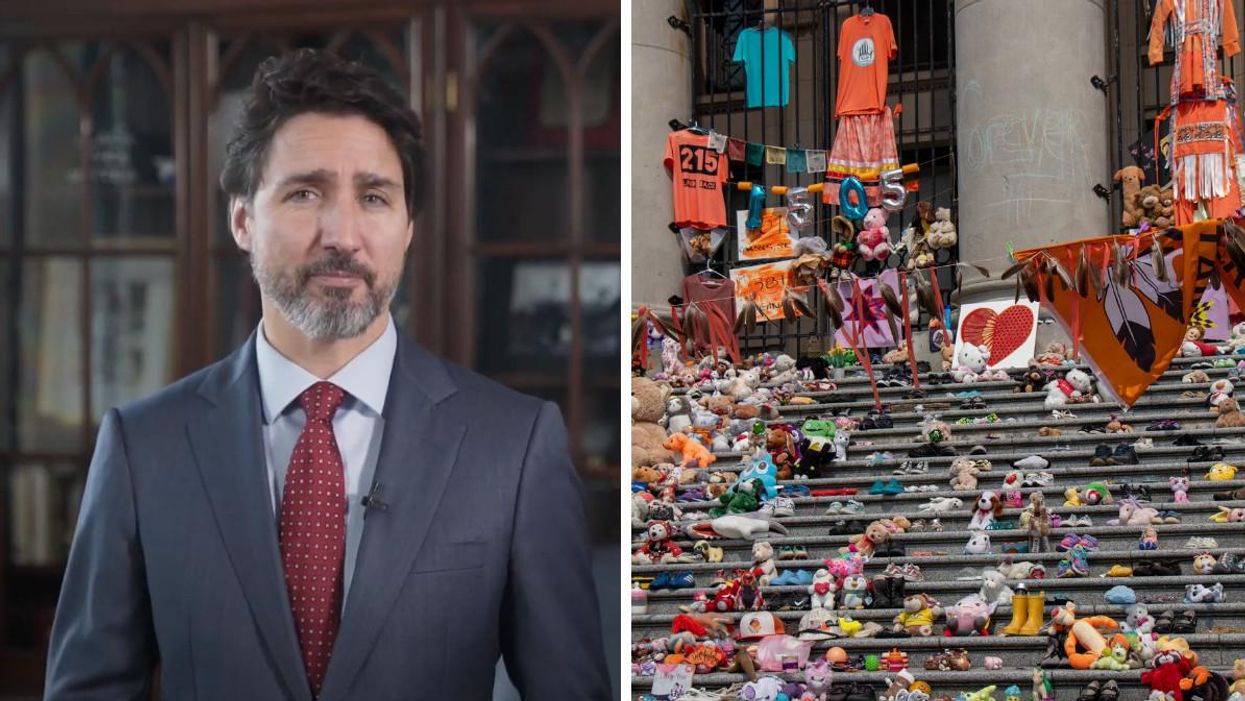Trudeau Says September 30 Is A 'Day To Remember The Many Children Who Never Returned Home'
He spoke about the "painful and lasting impacts of residential schools in Canada."
This article contains graphic content that might not be suitable for some readers.
On September 30 — Canada's first National Day for Truth and Reconciliation — Prime Minister Justin Trudeau issued a statement addressing the "painful and lasting impacts of residential schools in Canada."
"Today, I invite everyone across the country to recognize and observe the first National Day for Truth and Reconciliation," he said. Trudeau described it as a day to reflect on Canada's history and to "remember the many children who never returned home."
In the statement, he acknowledged that at least 150,000 Indigenous children from across the country were forcibly separated from their families and communities and taken to residential schools. There, many "experienced abuse and were removed from their cultures, languages, and traditions."
Trudeau went on to recognize the unmarked graves discovered at multiple former residential school sites in 2021.
"This year, the tragic locating of unmarked graves at former residential school sites across the country has reminded us of not only the impacts of colonialism and the harsh realities of our collective past, but also the work that is paramount to advancing reconciliation in Canada," he said.
Following calls to action from the Truth and Reconciliation Commission of Canada, September 30 became Canada's official National Day for Truth and Reconciliation.
The commission had called for a day that publicly commemorates the history and legacy of residential schools as a key part of the reconciliation process and to honour First Nations, Inuit and Métis survivors, their families and their communities.
It is now a stat holiday for federal government employees and federally regulated workplaces in Canada, as well as in many provinces.
This article's cover image was used for illustrative purposes only.
- National Day For Truth & Reconciliation Is Now A Holiday In Canada ... ›
- National Day For Truth & Reconciliation On September 30 Is 'An ... ›
- Canada's National Day for Truth & Reconciliation Is Coming ... ›
- Canada’s National Day For Truth & Reconciliation Is Coming & Here’s What You Need To Know - Narcity ›
- Here's What's Open & Closed In Ontario For The September 30 Truth & Reconciliation Holiday - Narcity ›
